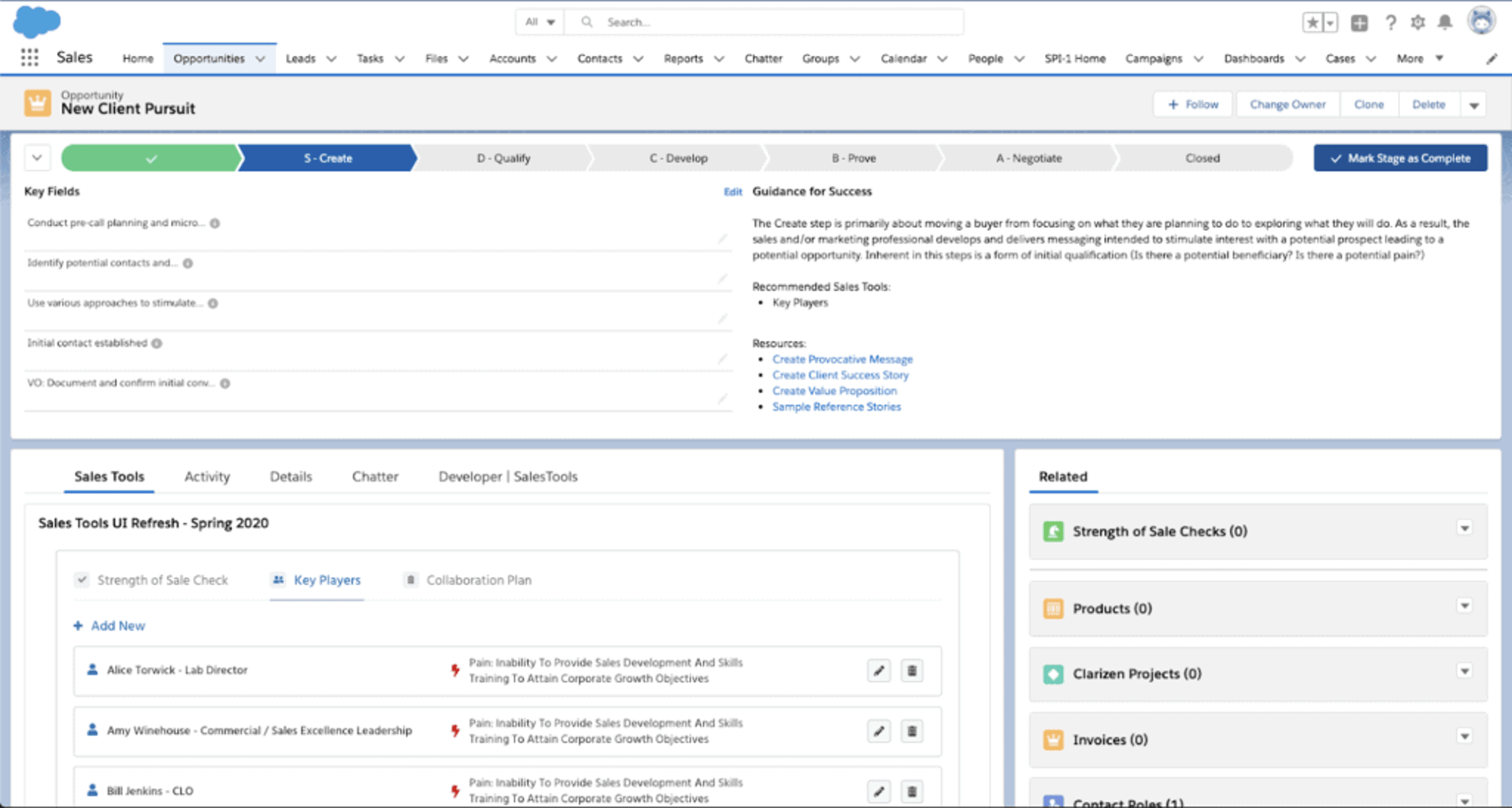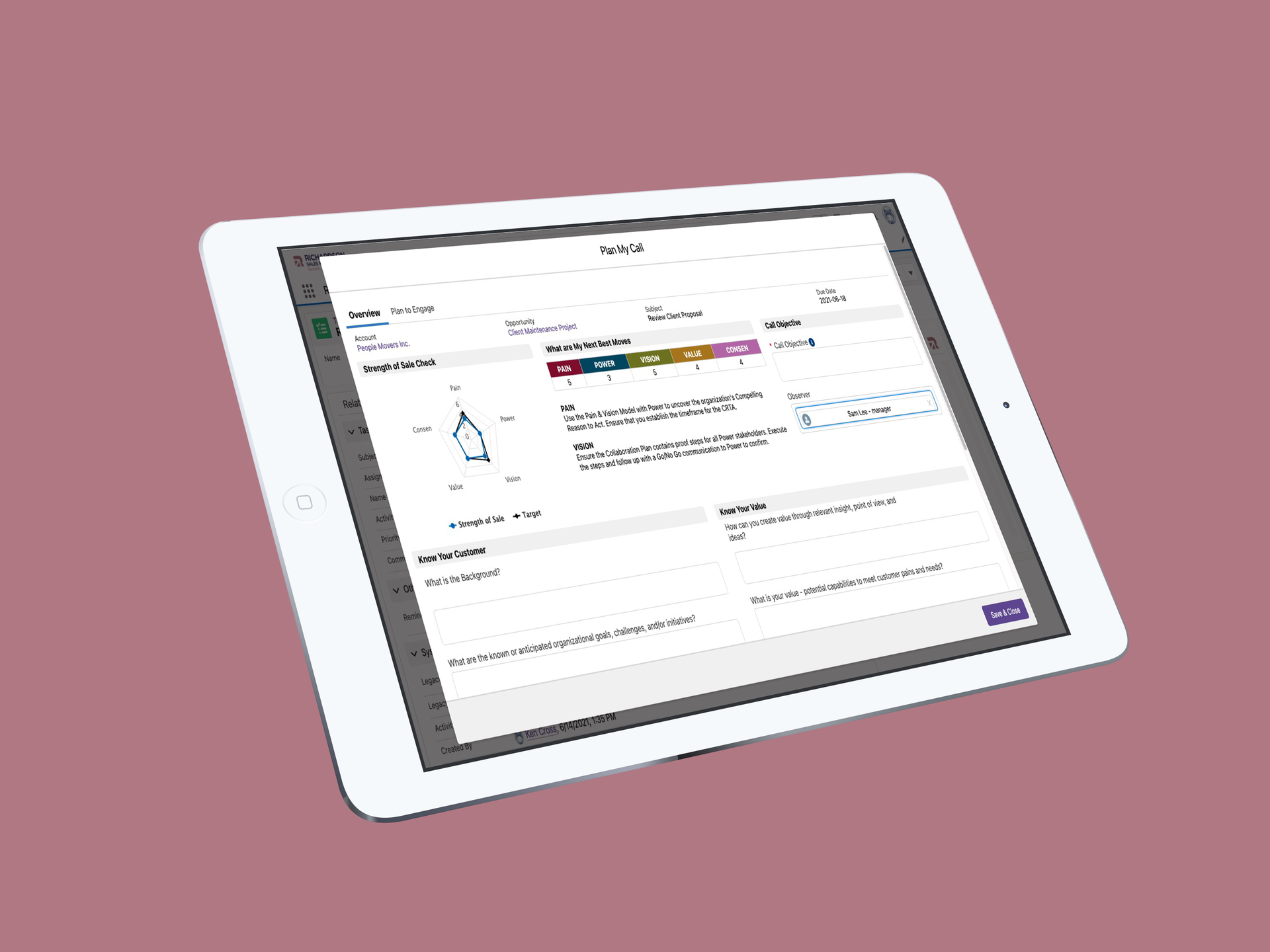How To Align CRM With Your Sales Process And Performance Improvement Initiatives
Sales management

Launching any new sales performance improvement initiative is no small undertaking. Tinkering with the revenue engine of your company always entails some degree of risk. Introducing anything new to your sales team requires forethought and planning to ensure that all goes smoothly.
We have observed that many of our clients misunderstand and underestimate the kind of impact changes in sales processes, methods, rewards, training or enablement tools can have on the successful use of customer relationship management (CRM) applications.
Challenges to CRM Alignment & Adoption
Adjusting the CRM to align with these changes can sometimes be viewed as an afterthought. When there is misalignment, salespeople may reduce their usage of CRM because it becomes an obstacle, rather than a help, to their sales success. Additionally, they are unlikely to fully adopt the changes in behaviour that you are seeking, because CRM supports old habits and is no longer aligned with an updated approach to selling and engaging with their clients.
According to a study by the Gartner Group, companies are spending nearly $20 billion on CRM annually, yet the adoption rate, as measured by regular use of the system, is less than 50 per cent. Other studies have been even more pessimistic, showing CRM adoption rates as low as 26 per cent. By Gartner’s calculations, this means that about $9 billion is essentially being wasted on CRM solutions to underutilisation and related costs. You can’t afford to let this happen in your organisation.
Despite higher amounts spent in CRM annually, adoption rate is still the main challenge for sales organisations. According to CSO Insights research (2019), only 47% of businesses with an implemented CRM have an adoption rate of over 90% in the business. Further, we have found that even with high levels of adoption, there is a difference between using the CRM (adoption) and effective usage of the CRM, meaning the CRM is used in a way to drive sales effectiveness and behaviour change.
Adjusting The CRM to Drive Alignment & Adoption
So what does it mean to align CRM with sales performance improvement initiatives and how do you do it to drive higher adoption rates and more effective usage?
Below are four lessons that we’ve learned from working with clients on optimizing the CRM experience, in alignment with a performance development initiative:
1. Align Sales Process Language and Behaviours with CRM Workflow
Plain and simple, your CRM system should support the current selling reality for your sales organisation. Including the use of language in your sales processes to describe your stages, activities and verifiable outcomes consistently in your CRM system workflow.
Involve your CRM team as early as possible in any sales process enhancement initiative, so they can develop a clear understanding of expectations and timing for implementation. Making these changes can seem straightforward, but there are often unexpected domino effects that impact reporting and integration with other business systems. Your CRM team needs sufficient time to re-align, reconfigure and test all applications involved to ensure it is implemented without creating difficulties for other business groups within the organisation.
2. Illustrate Your Sales Process Visibility in the CRM
Most companies represent their sales processes as a series of steps that indicate the high-level stages, flowing linearly from identification to close, and then sequentially list the activities that support each stage. Unfortunately, too many companies show their sales processes only as textual menus, tabs and links in their CRM system, which can be overwhelming and confusing to users. About 65 per cent of us are visual learners, and to this end, it is recommended that you represent your sales processes visually in your CRM system, to make them easier to learn, understand and use.
By representing your sales process as a visual flow diagram, your sellers will have an easier time navigating the process as they work in opportunities, and thus execute good sales behaviour more consistently. If your CRM system can’t support visual representations of your sales processes, there are relatively inexpensive plug-in applications that can help. This small investment will pay off almost immediately by encouraging higher adoption.

3. Embed Sales Process Coaching and Tools into your CRM Workflow
Sales professionals will gladly leverage new techniques and tools, if they help them to sell more with less risk and effort, essentially making the techniques accessible and approachable within their natural flow of work. Your CRM system should become the central hub for sales rep activity and provide access to tools and resources that improve day-to-day productivity. Make this easy by embedding tools in the CRM, combined with links to supporting resources, thus eliminating the need for a salesperson to search for what they need, when they really need them.
This is especially powerful when you bring your sales process to life visually in your CRM system. For example, if your sales process requires the use of tools such as a call planner or opportunity evaluation checklist, then provide those tools at the point of the process when they are needed. If there are coaching tips or examples that make a particular activity in the sales process easier to execute, then link to those from the recommended activity in CRM that the coaching impacts. These links can be connected to help in many forms besides text, such as PDF documents, podcasts, recorded webinars and YouTube-style videos.
For example, Richardson Sales Performance has developed a suite of sales tools which are aligned to the sales process and can be embedded in CRM to help sellers apply key methods consistently and effectively. These tools equip sales teams with:
- Key player identification in buyer organisations
- Sales conversation guidance
- Sales call planning and reflection tools
- Opportunity analysis and qualification
- Automated sales correspondence
- Shared collaboration plans with customers


CRM Enabled Workflow Tools
We support our partners with a full suite of CRM tools that align with different phases of the sales cycle – from call planning and account growth to ongoing sales enablement and marketing. Each tool complements skills developed in our sales training programmes.
Learn More4. Build More Flexibility and Responsiveness into Your CRM System
As we describe in our book, The Collaborative Sale, buyer behaviour has been changing rapidly, and it is recommended that you continuously improve your sales processes to reflect these changes. Maintaining alignment of your sales processes with buyer behaviours is key to CRM usage. Fortunately, there have been many innovations in sales technology that help to support rapid system changes and easy embedding of new coaching and tools.

Brochure: CRM-enabled Workflow Tools
Learn how our CRM tools integrate best practises into your team's workflow.
DownloadGet industry insights and stay up to date, subscribe to our newsletter.
Joining our community gives you access to weekly thought leadership to help guide your planning for a training initiative, inform your sales strategy, and most importantly, improve your team's performance.






